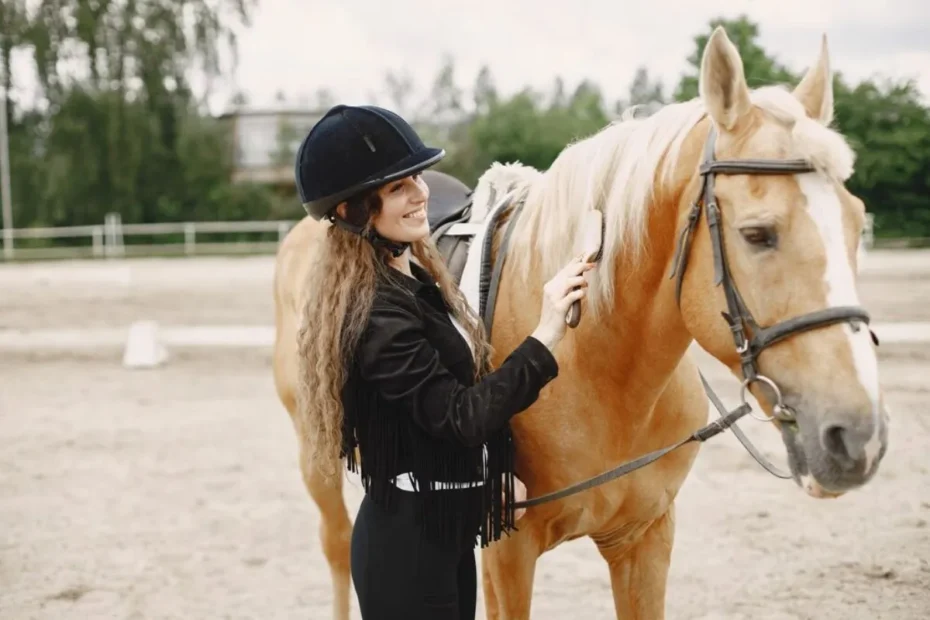Road trip safety for horses is critical to ensure they remain comfortable and secure throughout the journey. Whether you’re traveling a short distance or embarking on a longer trip, planning is essential. In this article, we’ll discuss tips to protect your equine friends and make your journey smooth.
Transporting horses can be stressful, but following these guidelines ensures they arrive safely. From proper equipment to hydration, every detail counts. Let’s delve into the best practices for a hassle-free road trip with your horses.
Ensuring road trip safety for horses involves more than just having a good trailer; it’s about meticulous planning and execution. Read on for detailed tips that cover every aspect of horse transportation.
Proper Planning
Proper planning is the foundation of a safe and successful road trip with horses. It involves mapping out the route and planning regular stops. Knowing where veterinary clinics are along the way can be crucial in case of an emergency.
Prepare your horses by getting them accustomed to the trailer days before the trip. Sometimes the stress of transportation can be mitigated by familiarizing them with the environment.
Check the weather forecast for the entire route. Extreme temperatures can affect horses just as they do humans, so plan accordingly to avoid any unnecessary discomfort.
Trailer Check-Up
Your trailer is a crucial component for ensuring road trip safety for horses. Make sure the trailer is in good condition before you start your journey. This includes checking the tires, brakes, and lights.
Verify that the trailer’s floor is solid and free of any damage that could potentially harm the horses. Secure all latches and make sure the doors are functioning correctly to guarantee safety during travel.
Sanitize the trailer to avoid any lingering bacteria or viruses. A clean environment will contribute to the well-being of your horses.
Necessary Equipment
Having the right equipment is essential. Start with a well-fitted headcollar and ensure they are equipped with breakaway features for safety.
Packing essential supplies like a first-aid kit, water buckets, feed, and a hay net can make the trip smoother. Keep a toolkit for any emergency repairs that may be needed en route.
Loading ramps should be stable and easy to maneuver. Investing in good-quality products will ensure the safety and comfort of your horses.
Loading Techniques
Effective loading techniques are vital for road trip safety for horses. Train your horse to load calmly and willingly before the day of the trip. Their comfort level with getting in and out of the trailer can greatly reduce travel stress.
Use positive reinforcement to encourage your horses during the loading process. Patience is key, as rush can exacerbate their stress levels.
Consider having a second person to assist with loading, especially if the horse is not familiar with traveling. Careful and calm handling can make a significant difference.
Maintaining Safety During Travel
Regular Breaks
One of the most important tips for road trip safety for horses is to take regular breaks. Stopping every 3-4 hours allows the horses to rest and reduces the risk of stress and fatigue.
During these breaks, check the horses for any signs of distress or discomfort. Offering them water and a chance to stretch their legs can make a big difference.
Stick to a pre-determined route with designated stopping points. This ensures you’re never far from help in case of an emergency.
Hydration and Nutrition
Hydration is critical during any trip. Ensure your horses have access to fresh water throughout the journey. Dehydration can lead to severe health issues.
Provide them with small, frequent amounts of food instead of large meals. This minimizes the risk of colic and other digestive problems during the trip.
Using a hay net can also help keep them engaged and calm. It mimics natural grazing behavior, which is comforting and helps reduce stress.
Monitoring Stress Levels
Monitoring stress levels is essential for road trip safety for horses. Watch for signs like excessive sweating, restlessness, or a rapid heart rate. These can indicate that your horse is struggling with the journey.
Use travel boots and blankets to protect them and provide an extra layer of comfort. This can alleviate some physical stress during transportation.
Calming aids, under the guidance of a vet, can also be used if necessary. These can be particularly useful for longer trips or for horses that are highly sensitive to travel.
Ensuring Comfort and Well-being
Ventilation and Temperature Control
Ventilation is another key component of road trip safety for horses. Ensure proper airflow within the trailer to avoid buildup of heat and humidity. Proper ventilation keeps the environment comfortable and reduces respiratory issues.
Temperature control is equally important. Use fans in hot weather and warm blankets in colder conditions. Maintaining a consistent, comfortable temperature is crucial for your horses’ well-being.
Regularly monitor the temperature inside the trailer with a thermometer. This helps you make necessary adjustments and prevent any discomfort.
Comfortable Flooring
Comfortable flooring is paramount for a safe and enjoyable trip. The trailer floor should be padded enough to absorb shocks and vibrations from the road.
Using shavings or mats can provide additional cushioning. This helps prevent injuries and ensures the horses have a more comfortable experience.
Regularly check for wear and tear on the padding and mats. Replacing them when necessary maintains a high level of safety and comfort during travel.
Calm Environment
Creating a calm environment greatly enhances road trip safety for horses. Reducing noise and vibration as much as possible helps keep horses relaxed.
Try to avoid sudden stops or sharp turns. Gradual acceleration and deceleration make for a smoother ride, which is less stressful for your horses.
Mood-boosting scents like lavender can also help in keeping horses calm. Incorporating such measures significantly improves their travel experience.
Post-Trip Care
Inspection and Health Check
Once you’ve reached your destination, conduct a thorough health check. Look for signs of injuries or stress. Early detection is crucial for prompt treatment.
Examine their legs and hooves for any signs of swelling or discomfort. Pay attention to their appetite and hydration levels post-travel.
Consult with a veterinarian if you notice any alarming signs. Ensuring your horse’s health post-trip is as important as pre-trip planning.
Rehydration and Feeding
After the journey, giving your horses time to rehydrate is key. Offer them water immediately upon arrival. Rehydration helps them recover from the stress of the trip.
Resume their regular feeding schedule gradually. Sudden changes can upset their digestive system. Start with small amounts and monitor their response.
Provide a comfortable and quiet space for them to rest and recover. A familiar environment aids in quicker recovery and reduces post-trip stress.
Cooling Down and Relaxation
Cooling down after a long trip is essential for road trip safety for horses. Walk them for a few minutes to help them stretch and relax their muscles.
Ensure they are properly cooled down before introducing them to their new environment. Sudden environmental changes can be stressful, so gradual adjustment is key.
A calm and quiet environment with minimal distractions helps them settle in faster. Providing a smooth transition from the road to their new surroundings is crucial for their well-being.
Closing Thoughts
Following these tips ensures a safe and stress-free journey for your horses. Proper planning, hydration, and regular breaks are fundamental for their well-being.
Maintaining their comfort and monitoring stress levels are equally important. A well-prepared trip guarantees they arrive happy and healthy.
Always prioritize your horses’ needs and consult with a vet for personalized advice. Their safety and comfort should always be your top priority.
For more guidance on ensuring road trip safety for horses, subscribe to our newsletter. Stay updated with the latest tips and information.
Frequently Asked Questions
How often should I stop during a road trip with my horse?
Stopping every 3-4 hours is ideal. This allows your horse to rest, hydrate, and stretch. Regular breaks can significantly reduce stress and fatigue.
What is the best way to keep my horse hydrated during the trip?
Provide fresh water during each stop. Bringing water from home can encourage them to drink, as they may be reluctant to drink unfamiliar water.
How can I reduce my horse’s stress during travel?
Familiarize them with the trailer before the trip. Using calming aids and ensuring a smooth, quiet ride can also help. Regular breaks for relaxation are crucial.
What essential equipment should I carry for a road trip with horses?
Carry a first-aid kit, water buckets, feed, a hay net, and a toolkit for emergencies. Ensure all equipment is in good condition before the trip.
How do I check if my trailer is safe for transport?
Inspect the tires, brakes, lights, and floor integrity. Ensure all latches work correctly and sanitize the trailer before loading your horse. Regular maintenance is key.

